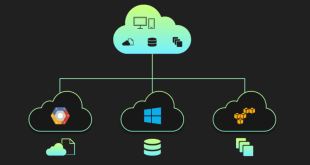In today’s fast-paced business landscape, Small and Medium-sized Enterprises (SMEs) are increasingly seeking scalable and cost-effective IT solutions to meet their growing demands. The private cloud has emerged as a game-changer, offering SMEs the power to access and manage their IT resources securely. In this comprehensive blog, we delve into the world of private cloud solutions, exploring its benefits, real-world examples, and how it empowers small businesses with the ability to scale their IT infrastructure efficiently.
Understanding the Private Cloud
What is a Private Cloud?
A private cloud is a type of cloud computing environment that is solely dedicated to a single organization. Unlike public clouds that serve multiple clients, the private cloud offers exclusive control and resources to the organization that owns it. It can be hosted on-premises or by a third-party provider, providing businesses with more control over their data and ensuring higher security and compliance levels.
Advantages of a Private Cloud
The private cloud offers a range of advantages that make it a compelling choice for SMEs:
Enhanced Security: Private clouds offer robust security measures, enabling SMEs to protect sensitive data and intellectual property effectively.
Customization: Businesses can tailor the private cloud environment to their specific needs, ensuring optimal performance and resource allocation.
Scalability: Private clouds are highly scalable, allowing SMEs to expand their IT resources seamlessly as their business grows.
Compliance: With greater control over data management, SMEs can meet industry-specific regulatory requirements easily.
Reliability: Private clouds offer higher reliability and uptime compared to public clouds, minimizing the risk of downtime.
Real-World Examples of Private Cloud Solutions
To understand the practical applications of private cloud solutions, let’s explore two real-world examples of SMEs benefiting from this technology:
XYZ Digital Agency
XYZ Digital Agency, a thriving SME in the marketing industry, faced challenges in handling their increasing data load and client demands. By implementing a private cloud solution, they gained:
- Secure storage and access to their client’s sensitive data, ensuring confidentiality.
- Efficient collaboration among team members through a centralized cloud platform.
- Scalable resources that allowed them to handle spikes in website traffic during marketing campaigns.
ABC Healthcare Clinic
ABC Healthcare Clinic, a small medical practice, needed a cost-effective and secure IT solution. They adopted a private cloud to:
- Store and manage electronic health records in compliance with HIPAA regulations.
- Leverage virtualization to optimize server resources and reduce hardware costs.
- Run essential medical applications securely and access them remotely for telemedicine consultations.
Key Considerations for SMEs Implementing Private Cloud Solutions
Assessing Business Needs
Before adopting a private cloud solution, SMEs must evaluate their specific IT requirements and growth projections. Conducting a thorough assessment will ensure that the chosen cloud infrastructure aligns perfectly with the business goals.
Security and Compliance Measures
Security is paramount for SMEs when it comes to cloud solutions. Partnering with a reliable private cloud provider ensures adherence to strict security and compliance standards, safeguarding sensitive business data.
Migration Strategy
For businesses transitioning from traditional IT infrastructure to the private cloud, a well-defined migration strategy is crucial. A phased approach with minimal disruption can ease the process and ensure a seamless transition.
Resource Management and Scalability
The beauty of a private cloud lies in its scalability. SMEs must plan for future growth and choose a solution that allows them to add resources as the business expands.
Commonly Asked Questions
Q1: Can SMEs afford a private cloud solution, or is it only suitable for larger enterprises?
A1: Private cloud solutions have become more affordable in recent years, making them accessible to SMEs. Additionally, the scalability of private clouds allows businesses to start small and expand resources as needed.
Q2: How does a private cloud compare to a public cloud in terms of security?
A2: Private clouds provide a higher level of security compared to public clouds since they are dedicated to a single organization, reducing the risk of data breaches.
Q3: What happens if there is a power outage or technical issue with the private cloud?
A3: Reputable private cloud providers offer robust disaster recovery plans to ensure minimal downtime during power outages or technical failures.
Q4: Can SMEs integrate their existing applications into a private cloud environment?
A4: Yes, private cloud solutions can be seamlessly integrated with existing applications, ensuring a smooth transition without disrupting daily operations.
Q5: How can SMEs monitor and manage their private cloud resources effectively?
A5: Private cloud providers typically offer user-friendly management interfaces that allow SMEs to monitor and manage their resources easily.
Final Words
Private cloud solutions present an excellent opportunity for SMEs to leverage scalable IT resources, enhance security, and streamline operations. By carefully assessing their needs, choosing the right provider, and planning for future growth, SMEs can embark on a successful private cloud journey. Embracing this transformative technology will undoubtedly empower small businesses to thrive in the digital era.
 webfily
webfily



